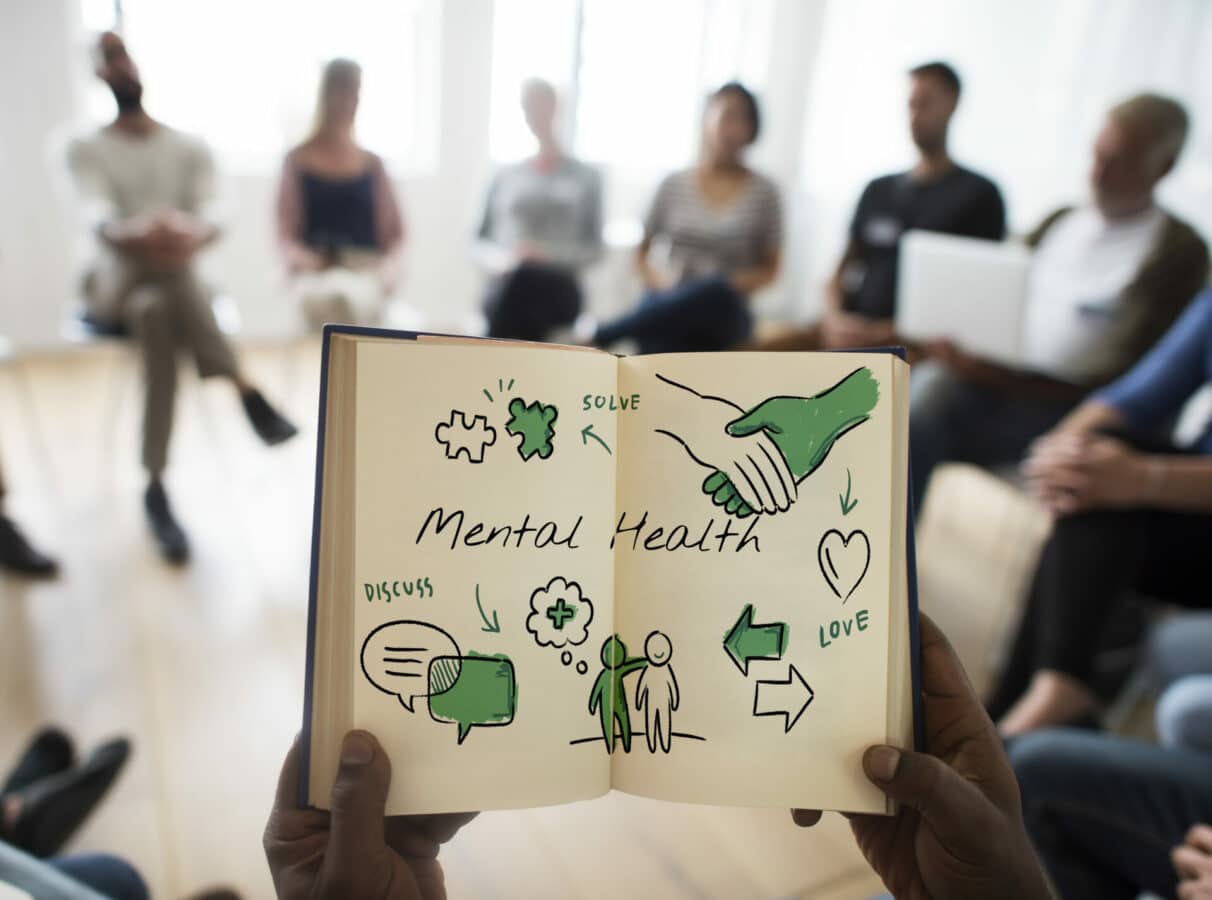Engineering is this sort of a ubiquitous part of contemporary lifetime that it can frequently experience like a power of mother nature, a effective tidal wave that consumers and individuals can trip but have minor ability to tutorial its route. It doesn’t have to be that way.
Go to the internet internet site to view the video clip.
Fairly than just accept the idea that the consequences of engineering are past our control, we ought to realize the highly effective part it performs in our day to day life and make a decision what we want to do about it, claimed Rob Reich, Mehran Sahami and Jeremy Weinstein in their new e-book Procedure Mistake: Exactly where Huge Tech Went Wrong and How We Can Reboot (Harper Collins, 2021). The e book integrates each of the scholars’ exclusive perspectives – Reich as a philosopher, Sahami as a technologist and Weinstein as a coverage pro and social scientist – to display how we can collectively shape a technological upcoming that supports human flourishing and democratic values.
Reich, Sahami and Weinstein very first arrived alongside one another in 2018 to instruct the well known computer science class, CS 181: Personal computers, Ethics and Public Plan. Their course morphed into the training course CS182: Ethics, Public Policy and Technological Modify, which places pupils into the purpose of the engineer, policymaker and philosopher to greater fully grasp the inescapable moral proportions of new technologies and their affect on society.
Now, setting up on the class elements and their activities educating the articles the two to Stanford students and expert engineers, the authors demonstrate visitors how we can work alongside one another to address the adverse impacts and unintended effects of technologies on our life and in society.
“We need to have to change the pretty working procedure of how know-how products and solutions get developed, distributed and utilised by millions and even billions of people,” said Reich, a professor of political science in the School of Humanities and Sciences and school director of the McCoy Loved ones Center for Ethics in Society. “The way we do that is to activate the agency not just of builders of technologies but of users and citizens as well.”
How engineering amplifies values
Without having a question, there are a lot of pros of acquiring technological innovation in our life. But rather of blindly celebrating or critiquing it, the scholars urge a debate about the unintended consequences and destructive impacts that can unfold from these strong new instruments and platforms.
1 way to examine technology’s results is to check out how values come to be embedded in our devices. Just about every working day, engineers and the tech providers they function for make choices, normally enthusiastic by a desire for optimization and efficiency, about the solutions they develop. Their selections generally occur with trade-offs – prioritizing a person aim at the expense of a different – that may not reflect other deserving targets.
For instance, buyers are frequently drawn to sensational headlines, even if that content, regarded as “clickbait,” is not useful data or even truthful. Some platforms have made use of simply click-by means of premiums as a metric to prioritize what material their customers see. But in executing so, they are generating a trade-off that values the simply click relatively than the content material of that click on. As a consequence, this may perhaps guide to a fewer-knowledgeable society, the scholars warn.
“In recognizing that those people are possibilities, it then opens up for us a feeling that people are choices that could be designed otherwise,” claimed Weinstein, a professor of political science in the School of Humanities & Sciences, who earlier served as deputy to the U.S. ambassador to the United Nations and on the Countrywide Security Council Staff at the White Household during the Obama administration.
An additional case in point of embedded values in know-how highlighted in the book is person privacy.
Legislation adopted in the 1990s, as the U.S. federal government sought to pace development toward the data superhighway, enabled what the students call “a Wild West in Silicon Valley” that opened the doorway for businesses to monetize the individual data they acquire from people. With very little regulation, electronic platforms have been equipped to gather facts about their end users in a wide range of methods, from what people today examine to whom they interact with to wherever they go. These are all aspects about people’s life that they may consider very personal, even confidential.
When facts is collected at scale, the potential reduction of privateness will get radically amplified it is no extended just an specific problem, but turns into a greater, social a single as perfectly, reported Sahami, the James and Ellenor Chesebrough Professor in the School of Engineering and a former research scientist at Google.
“I could want to share some personal details with my good friends, but if that facts now gets to be accessible by a huge fraction of the earth who likewise have their facts shared, it usually means that a big portion of the world doesn’t have privacy any longer,” mentioned Sahami. “Thinking by these impacts early on, not when we get to a billion people today, is just one of the factors that engineers have to have to recognize when they establish these systems.”
Even although persons can change some of their privacy settings to be extra restrictive, these capabilities can from time to time be tricky to obtain on the platforms. In other circumstances, customers may not even be mindful of the privacy they are offering away when they agree to a company’s terms of company or privateness plan, which often acquire the variety of lengthy agreements filled with legalese.
“When you are likely to have privateness settings in an software, it shouldn’t be buried five screens down where they are tough to locate and tricky to have an understanding of,” Sahami stated. “It must be as a high-level, quickly obtainable procedure that claims, ‘What is the privacy you care about? Allow me reveal it to you in a way that tends to make feeling.’ ”
Other folks may come to a decision to use additional non-public and secure approaches for communication, like encrypted messaging platforms these kinds of as WhatsApp or Sign. On these channels, only the sender and receiver can see what they share with one a different – but concerns can surface area right here as nicely.
By guaranteeing complete privateness, the chance for people today performing in intelligence to scan individuals messages for prepared terrorist assaults, little one sexual intercourse trafficking or other incitements of violence is foreclosed. In this scenario, Reich reported, engineers are prioritizing specific privateness above private basic safety and national protection, due to the fact the use of encryption can not only make certain private interaction but can also let for the undetected firm of criminal or terrorist activity.
“The balance that is struck in the technology business among trying to assurance privateness though also hoping to assurance private protection or nationwide security is something that technologists are producing on their have but the rest of us also have a stake in,” Reich reported.
Other individuals might make a decision to choose more command above their privacy and refuse to use some electronic platforms altogether. For illustration, there are escalating calls from tech critics that customers need to “delete Fb.” But in today’s earth exactly where know-how is so a lot a aspect of day-to-day lifetime, steering clear of social applications and other digital platforms is not a realistic answer. It would be like addressing the hazards of automotive safety by asking folks to just stop driving, the scholars mentioned.
“As the pandemic most powerfully reminded us, you can’t go off the grid,” Weinstein claimed. “Our modern society is now hardwired to count on new technologies, irrespective of whether it is the mobile phone that you carry all over, the computer that you use to create your get the job done, or the Zoom chats that are your way of interacting with your colleagues. Withdrawal from technological innovation truly isn’t an solution for most folks in the 21st century.”
In addition, stepping back is not ample to remove oneself from Major Tech. For illustration, while a human being might not have a presence on social media, they can even now be affected by it, Sahami pointed out. “Just for the reason that you really don’t use social media doesn’t signify that you are not even now having the downstream impacts of the misinformation that everyone else is receiving,” he mentioned.
Rebooting by way of regulatory variations
The scholars also urge a new strategy to regulation. Just as there are guidelines of the highway to make driving safer, new procedures are necessary to mitigate the unsafe effects of know-how.
When the European Union has handed the extensive General Data Defense Regulation (recognized as the GDPR) that needs corporations to safeguard their users’ data, there is no U.S. equal. States are seeking to cobble their very own legislation – like California’s latest Purchaser Privateness Act – but it is not ample, the authors contend.
It is up to all of us to make these variations, stated Weinstein. Just as firms are complicit in some of the damaging results that have arisen, so is our governing administration for allowing organizations to behave as they do without a regulatory reaction.
“In indicating that our democracy is complicit, it’s not only a critique of the politicians. It is also a critique of all of us as citizens in not recognizing the energy that we have as men and women, as voters, as active participants in society,” Weinstein claimed. “All of us have a stake in those outcomes and we have to harness democracy to make individuals selections jointly.”
Program Error: Wherever Big Tech Went Mistaken and How We Can Reboot is available Sept. 7, 2021.





More Stories
Negotiating Technology Contracts
Civilian Applications of GPS Technology
Technology and the Age of Exploration